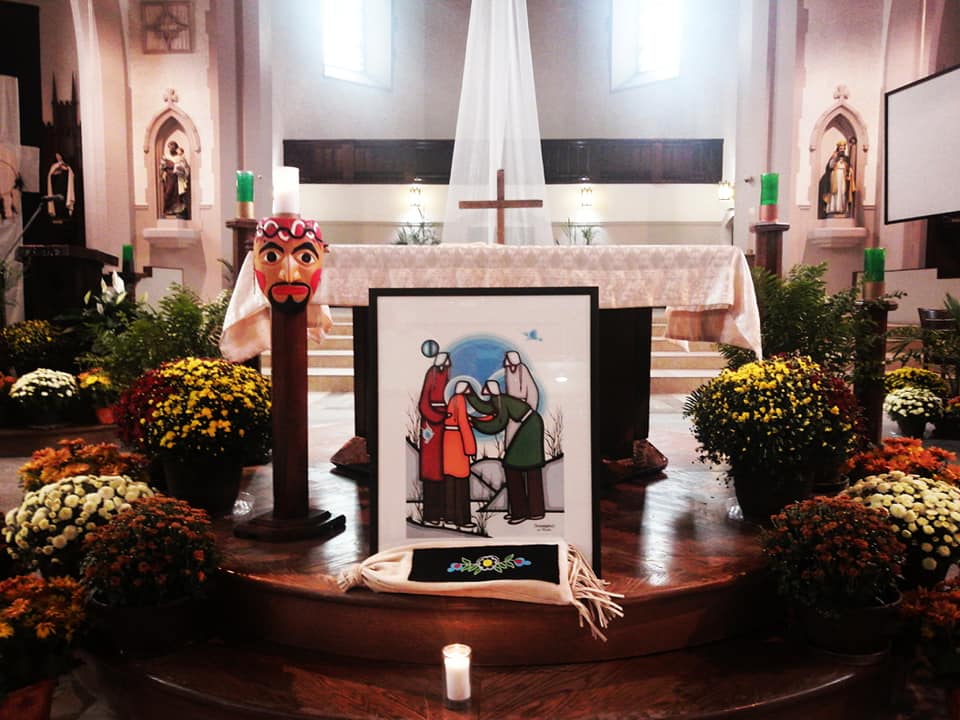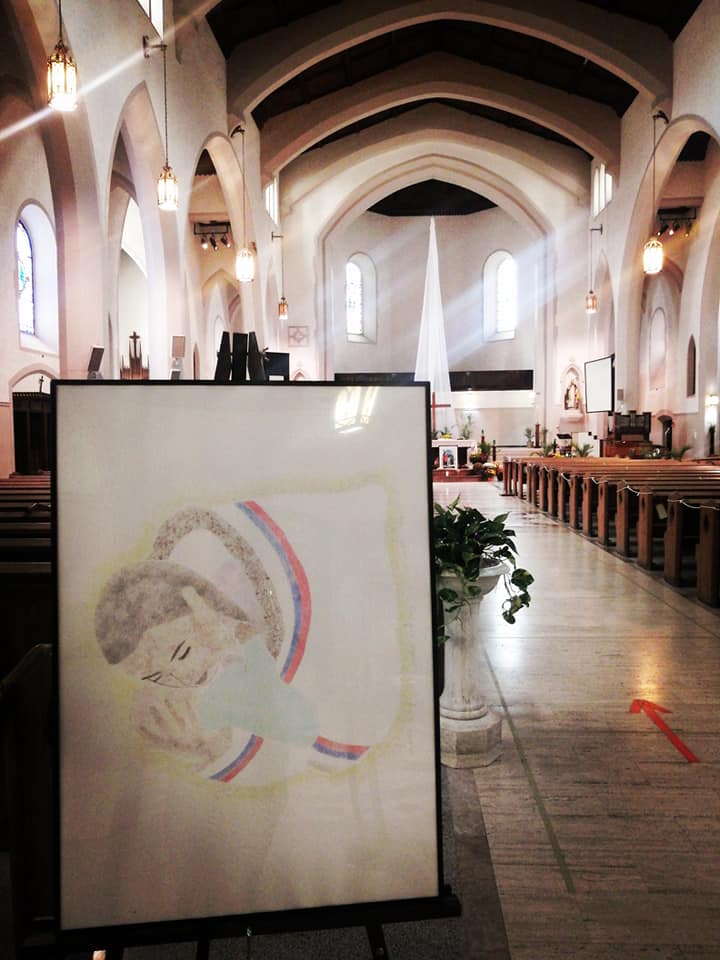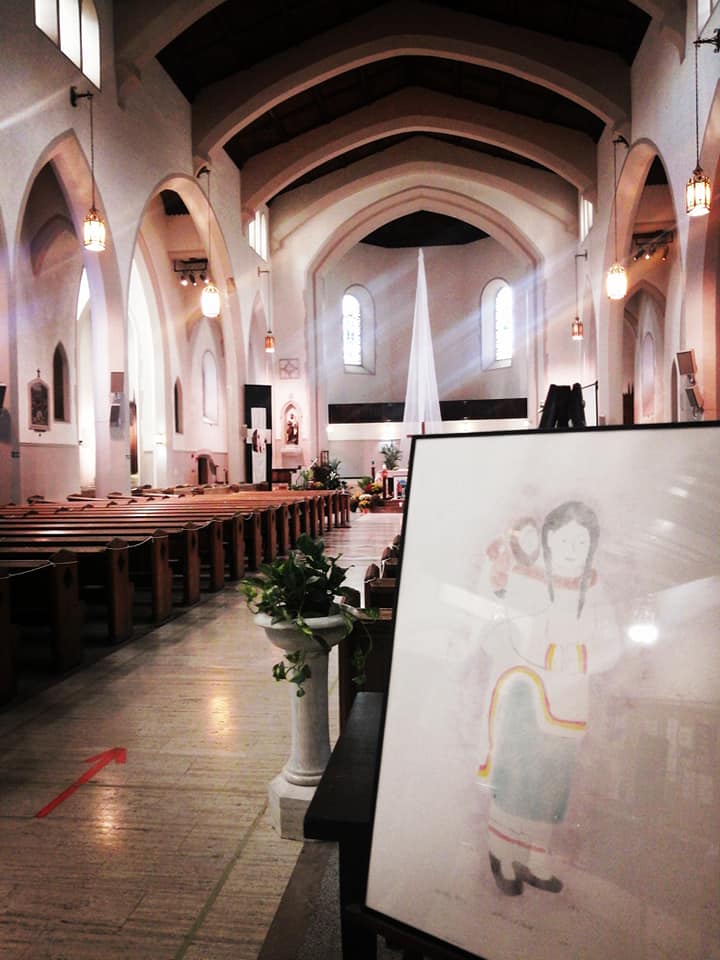St. Joseph’s Parish in Ottawa marked the first National Day for Truth and Reconciliation on September 30th with a display of Indigenous art and a special reflection and prayers at noon Mass, celebrated by Father Jim Bleackley OMI. In praying for the repose of the souls of the deceased children found at former residential schools, the 20 parishioners gathered in the church at this midday Mass also prayed for the “consolation of their families, for all those whose lives were affected, for those whose past trauma has resurfaced and for the Indigenous peoples of this land who were impacted.” As well, the prayers of the faithful called upon “the whole Church to recognize the injustices of the past and present, to fully apologize and atone for those wrongs, to listen with humility, and to move forward in solidarity with our Indigenous sisters and brothers in the healing and reconciliation process.”

The display at St. Joseph’s Parish in Sandy Hill for the National Day of Truth and Reconciliation. Photo: St. Joseph’s Parish
The parish was founded in 1856 by the Missionary Oblates of Mary Immaculate — the order that ran 48 Indian residential schools. The order, which continues to provide clergy for the parish, launched a new section on its website to offer resources related to Truth and Reconciliation. “Orange Shirt Day, now known as The National Day for Truth and Reconciliation, is an opportunity for all Canadians to consider the impacts of the residential school system. The Missionary Oblates of Mary Immaculate were a part of this system; we oversaw forty-eight of these schools – more than any other single religious organization. Today, the Oblates are committed to listening humbly to the stories of Indigenous peoples and learning from them,” the Oblates shared. Speaking about this new online resource, the order adds: “Our sincere hope is that our small steps will be a visual reminder of the role played by the Missionary Oblates in the residential school system and our own need to fully participate in the practice of reconciliation.”

Indigenous art on display at St. Joseph’s Parish in Sandy Hill. Photo: St. Joseph’s Parish.
Dorothy Cardinal is a survivor of the Indian Residential School system and an elder from Alexis Nakota Stony Reserve – Treaty 6 territory. In a reflection offered to the Oblates, she writes: “Reconciliation to me involves acknowledging and remembering all the residential school survivors and the ones who never made it home. It is the opportunity to better understand why Indigenous peoples are suffering in today’s society. For us to move forward, we need to follow our ways, ways that help us connect, to have faith, hope, and love. As an Indigenous person, you are connected in the balance of the medicine wheel: mentally, emotionally, physically, and spiritually. This balance is very important. For me, I go to church because I am a strong believer in the Roman Catholic religion. This is how my parents raised me and I find my balance in the Father, the Son, and the Holy Spirit.”

Indigenous art on display at St. Joseph’s Parish in Sandy Hill. Photo: St. Joseph’s Parish
In his homily at noon Mass, Fr. Bleackley spoke of his own encounters with Indigenous communities in the north during many years of pastoral work before being called to serve in Ottawa. He shared that he could see how so many Indigenous carried with them deep wounds, including intergenerational trauma, connected to the experience of residential schools. In Scripture readings we often hear of the sanctity of marriage, but an even more sacred relationship is the one between mother and child. It is this relationship that residential schools destroyed, Fr. Bleackley noted. While this burden of grief was carried with much dignity for so long by the Indigenous, as Canadians we all have a duty first and foremost to listen to Indigenous voices and to renew our efforts for justice, healing and reconciliation in this country.
